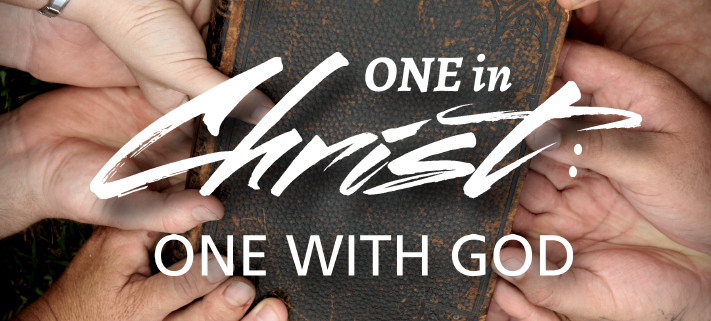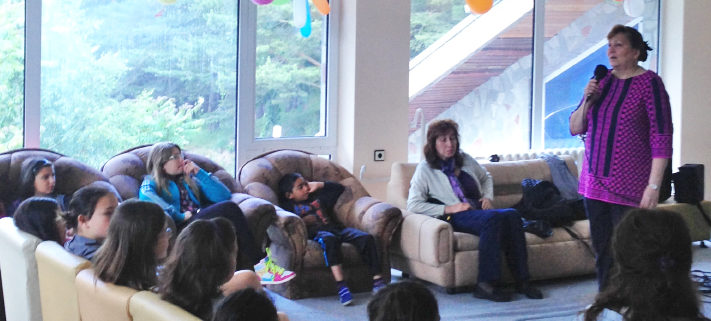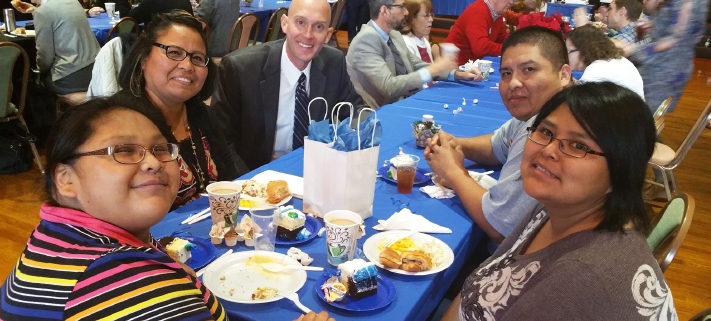Our authors this month are at three very different stages in their parenting journeys. Yet each one offers valuable advice for helping children learn how to manage money in a God-pleasing way. Do you have advice on this important topic? E-mail [email protected] to share your thoughts and experiences.
Have you visited Heart to heart’s website lately? The site offers webcasts and podcasts on each month’s topic, as well as expanded versions of the articles printed in this column. Some months, additional articles are also posted that complement what is shared here. Visit wels.net/ forwardinchrist today.
Nicole Balza
HOW DO WE TEACH KIDS TO MANAGE MONEY IN A GOD-PLEASING WAY?
A few years ago, our church offered a Christian financial planning program that focused on helping people get in control of their money. The class changed everything money-related in our marriage (for the better!) and made us much more conscious of what habits we wanted to impart to our children.
We ordered a junior financial planning kit for our daughter, Anna. One of the main points in the junior program is that a weekly allowance is out because then kids learn that they get money for nothing. The program favors a chore/commission approach instead.
We created a chore chart for Anna with age-appropriate chores and associated commissions for each one. If she did the chore that day, she’d get paid; if not, then no money. At the end of the week, we’d tally up how much money she had earned and pay up. She sorted her weekly pay into three pouches. She used one for saving, one for spending, and one for giving. The giving envelope came with us weekly to church for the offering. Any time we went to the store, she could bring her spending money.
We have admittedly fallen away from following this as closely as we did in the beginning. But the principles we learned from that program have endured. I’ll offer the kids chores to do, or I’ll support a lemonade stand in the summer if they ask for spending money. They both love putting money in the offering tray on Sunday mornings, and gathering contributions for the offering has become part of getting ready for church in our house.
My rule for shopping with the kids is if they want something that isn’t on my list, they better have brought their spending money. And if they forgot, then we can bring it next time. This has worked surprisingly well at squashing a lot of the begging that occurs on our shopping expeditions.
I feel like Andy and I have established a fairly good base of teaching our kids to manage their money, but there is still a lot we want them to learn. I want to teach them about budgeting and living within their means; about saving strategically for future and potential emergencies; about credit cards not being the key to freedom I thought they were in college; and about giving generously, using their gifts from God to benefit others.
Kerry Ognenoff and her husband, Andy, have a daughter in second grade and a son in preschool.
As I sit down to write this article, my oldest son is beginning his final semester of college. Our time of instructing him in our home is nearing an end. I’m pretty sure it was only yesterday that I took his little hand and led him into his kindergarten classroom. On that fall day 16 years ago, and on the many days that followed, it seemed like our years of parenting would stretch on forever. It seemed like there were unlimited days left for teaching opportunities in our home. Now I am facing a bittersweet ending, a closing of a chapter in our parenting lives.
So I have a confession to make. In hindsight, one of those teaching opportunities that my husband, Thad, and I often failed to be intentional about was modeling a God-pleasing attitude toward money and possessions, and better yet—a focus on living out of gratitude for the Lord and all he’s blessed us with. We thank God that, in Christ, he forgives our shortcomings as parents!
Here are some important lessons that Thad and I have learned and are still working to teach in our home regarding our attitude toward money and possessions:
• Everything we have—from the comfortable house we live in to the stray paper clip at the bottom of the junk drawer—is a gift “from above, coming down from the Father of the heavenly lights” (James 1:17). We are simply the blessed and undeserving recipients of these gifts. When we have that attitude, we start to view our possessions as a “privilege,” instead of a “right.”
• We need to show our kids how to give sacrificially to God in response to all our blessings and verbalize why we give. As parents, we must model how to earmark the first portion of our income to support God’s work. It is a very intentional response to our blessings, and it serves others—and becomes more meaningful than just a few coins hastily shoved into the little Sunday school envelope five minutes before the service begins. (And yes, we did this.)
• We need to model how to do an honest day’s work—for which we earn an honest wage. We can’t raise the next generation to do nothing and yet expect something in return. When we have to work hard for something, it carries a higher value.
• Our value is not dependent on how much money we have in the bank or what brand of car we drive. Quite simply, our value is dependent on who we are in Christ. We are redeemed children of God, and nothing on earth is worth more than that.
Is it too late for Thad and me to teach our kids these lessons in our home? No. Although our boys are legally adults, they are still our children. We are still Mom and Dad, and it is still our number one responsibility to instruct them in God’s truth and in how to view our lives—and all we have—as gifts from a loving heavenly Father.
Ann Jahns and her husband, Thad, have three sons, two in college and one in high school.
Laughter. Uncontrolled. “The parenting column wants you to write about teaching kids finances?” My wife’s question was punctuated by gasps for air. “Do they know you haven’t written a check in decades?”
When she regained her composure, I meekly asked, “Wife, would you help me write this article?” Thankfully, she agreed. Sharon’s tips are intended to start the conversation about the financial training of children.
MAKE USE OF TEACHABLE MOMENTS
“Can we go out to eat tonight?”
“No, Sweetie, we don’t have money in our budget for that.”
“Can’t we just go to the bank and get some more money?”
Use these teachable moments to talk about
• your spending priorities (“We can’t afford that right now, but we are saving for it”),
• getting the best deal (“Is the better buy at Amazon or eBay?”),
• judging quality in what you buy (“This coat is less expensive, but will that more expensive coat last longer?”), and
• resisting impulse buying (“Why do you suppose stores put candy and snacks next to the checkout?”).
SHOW HOW YOU MANAGE YOUR FINANCES
“What are you doing, Mommy?” my daughter asked when she was in grade school.
“Paying bills, Honey. That check is for your school. This one pays for that new coat we bought you last month. But there are lots of bills I don’t have to write checks for. We pay many of our bills with money that comes right out of our checking account. That’s how we pay to live in this house and how we pay for our car. But do you see that check over there? That’s the first one I write because I want to make sure there is always money for it. That’s our offering to Jesus.”
EXPLAIN HOW YOU HANDLE YOUR FINANACES
• Show them what happens when you scan your church’s QR code to make a donation.
• Walk them through your family budget sheet.
• Let them sit with you as you electronically transfer money between your savings and checking accounts or set up automatic withdrawals. Of course, keep passwords secure.
• When they are in junior high, help them set up a joint checking and savings account with you. Monitor how they manage that responsibility.
• Talk about the percentage of income you give to your church and other charitable organizations. Emphasize how God’s grace prompts you to be as generous as possible.
• When money is tight, remind them that because Jesus is your Savior, your heavenly Father will continue to care for you. Tell them family accounts of God’s providence.
James and Sharon Aderman raised three daughters and are now enjoying their eight grandchildren.
Do you have a manuscript, idea, or story from your own life you’d like to share for use in Forward in Christ or on wels.net? Use our online form to share it to our editorial office for consideration.
Get inspirational stories, spiritual help, and synod news from Forward in Christ every month. Print and digital subscriptions are available from Northwestern Publishing House.
Author: Multiple
Volume 103, Number 4
Issue: April 2016
Copyrighted by WELS Forward in Christ © 2021
Forward in Christ grants permission for any original article (not a reprint) to be printed for use in a WELS church, school, or organization, provided that it is distributed free and indicate Forward in Christ as the source. Images may not be reproduced except in the context of its article. Contact us









